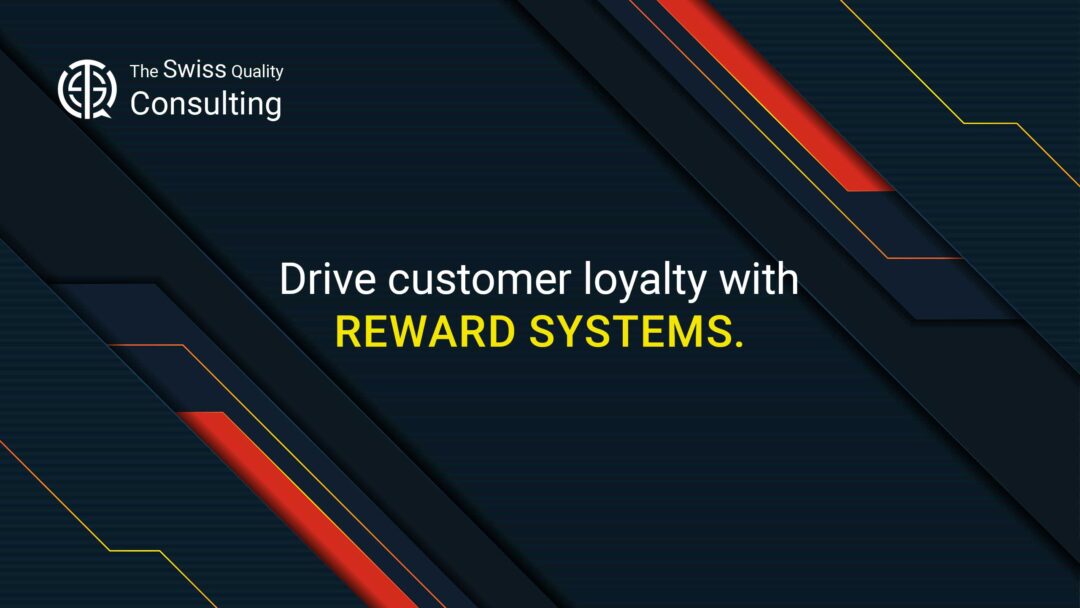Fostering Loyalty Through Innovative Reward Systems
In the competitive landscape of business, customer loyalty is a prized asset. Whether you’re a business executive, mid-level manager, or entrepreneur, understanding how to cultivate and maintain customer loyalty can be the key to long-term success. One effective strategy in achieving this is through the implementation of reward systems. In this article, we will explore the significance of reward systems and their role in driving customer loyalty.
The Importance of Customer Loyalty
Customer loyalty transcends the realm of mere repeat purchases; it signifies a profound and enduring bond between a brand and its patrons. Loyal customers are not merely passive consumers; they are ardent advocates who actively champion the brand’s offerings. Their unwavering support translates into a powerful force for business growth and success.
Loyalty is not merely about purchasing a product or service; it’s about forming an emotional connection with the brand. Loyal customers identify with the brand’s values, resonate with its messaging, and feel a sense of belonging to the brand community. This deep-rooted attachment goes beyond the functional aspects of the product or service; it’s about the emotional resonance and the shared experiences it evokes.
The benefits of customer loyalty extend far beyond repeat purchases. Loyal customers are more likely to recommend the brand to their peers, friends, and family, acting as unpaid brand ambassadors. Their positive word-of-mouth marketing carries immense weight, generating interest and credibility that traditional marketing channels often struggle to achieve.
The value of customer loyalty lies not just in immediate sales but in long-term brand equity. Loyal customers provide a steady stream of revenue, reduce customer acquisition costs, and foster a positive brand reputation. They are the backbone of a thriving business, contributing to sustainable growth and profitability.
Cultivating customer loyalty is not a one-time endeavor; it’s an ongoing process that requires consistent effort and commitment. Businesses must go beyond mere transactions and engage with their customers on a deeper level. They must demonstrate empathy, provide exceptional service, and align their values with the needs and aspirations of their target audience.
In today’s competitive marketplace, customer loyalty is not a luxury; it’s a necessity. By nurturing and strengthening these bonds, businesses can build a loyal customer base that serves as a powerful engine for growth, innovation, and sustainable success.
Reward Systems: A Strategic Approach
Reward systems are structured programs that incentivize customers to engage with a brand repeatedly. These programs offer tangible benefits or rewards in exchange for specific actions, such as making purchases, referring friends, or participating in loyalty programs.
Types of Rewards
Reward systems can offer various types of incentives, including discounts, cashback, exclusive access to events or products, and loyalty points that can be redeemed for future purchases. The key is to offer rewards that are meaningful and relevant to your target audience.
Building Emotional Connections
Reward systems are not just about financial benefits; they also help build emotional connections with customers. When customers feel appreciated and recognized for their loyalty, they are more likely to continue their patronage.
The Role of Technology in Reward Systems
In today’s digital age, technology plays a crucial role in the effectiveness of reward systems. Mobile apps, CRM (Customer Relationship Management) software, and Generative Artificial Intelligence (AI) are among the tools that enhance the management and personalization of these programs.
Personalization and Data Analysis
Generative AI can analyze customer data to personalize reward offers. By understanding customer preferences and behavior, businesses can tailor rewards to individual needs, increasing their relevance and effectiveness.
Automation and Efficiency
Technology also enables the automation of reward systems, making it easier to track customer interactions, calculate rewards, and communicate with participants. This automation streamlines the process and reduces the administrative burden on businesses.
Maximizing Customer Loyalty Through Reward Systems
When implemented effectively, reward systems can have a significant impact on customer loyalty, contributing to business growth and sustainability.
Encouraging Repeat Purchases
Rewarding customers for repeat purchases encourages them to return to your business instead of seeking alternatives. Over time, this creates a habit of buying from your brand.
Fostering Advocacy and Referrals
Happy and loyal customers are more likely to recommend your brand to their friends and family. Referral programs within reward systems can amplify this effect, bringing in new customers and expanding your loyal customer base.
Conclusion
In conclusion, driving customer loyalty through reward systems is a strategic approach that pays off in the long run. Loyal customers not only continue to support your business but also become advocates, helping you acquire new customers through positive word-of-mouth. Technology, including Generative AI, can enhance the personalization and efficiency of reward programs, making them even more effective. By prioritizing customer loyalty and implementing well-designed reward systems, businesses can strengthen their position in the market and secure a brighter future.









